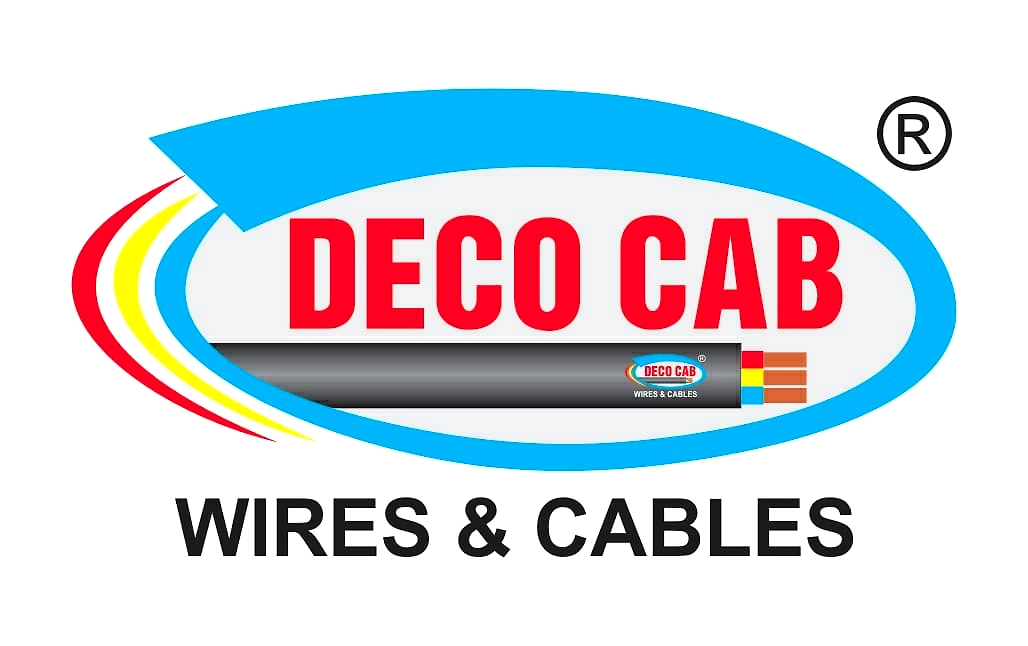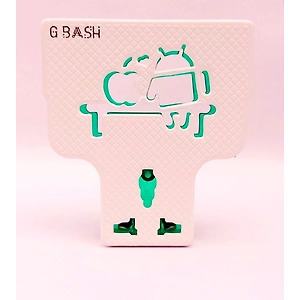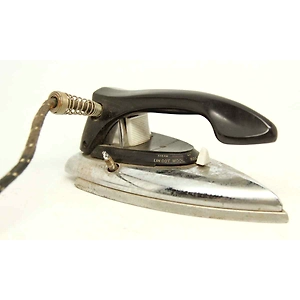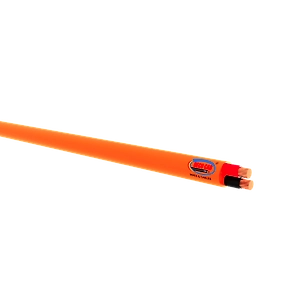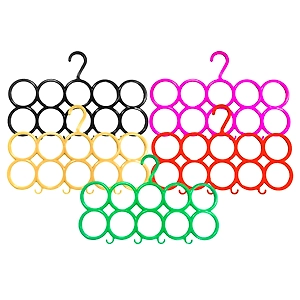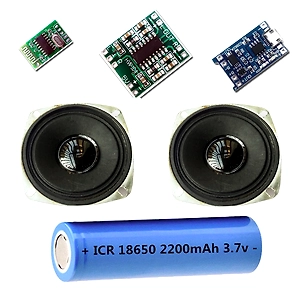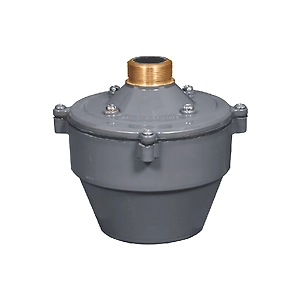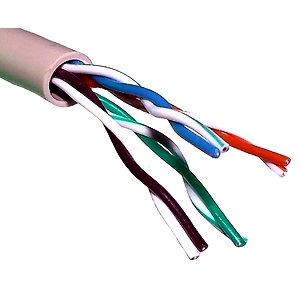-
Buyer
Register as a Foriegn Buyer
-
Seller
Log In Register as a Seller
- GI Products
-
Food & Beverage
- Canned Food
- Honey Products
- Seafood
- Seasonings Condiments
- Pet Food
- Slimming Food
- Snack Food
- Soft Drinks
- Tea
- Vegetable Products
- Alcoholic Beverage
- Baby Food
- Baked Goods
- Bean Products
- Coffee
- Confectionery
- Dairy
- Drinking Water
- Egg Products
- Food Ingredients
- Fruit Products
- Grain Products
- Instant Food
- Meat Poultry
-
Agriculture
- Agricultural Growing Media
- Animal Products
- Beans
- Coffee Beans
- Farm Machinery Equipment
- Feed
- Fruit
- Grain
- Mushrooms Truffles
- Nuts Kernels
- Organic Produce
- Ornamental Plants
- Plant Animal Oil
- Plant Seeds Bulbs
- Timber Raw Materials
- Vanilla Beans
- Vegetables
- Leaves
- Coconut Kernel Products
- Coconut Fiber Products
- Coconut Peat Products
- Coconut Water Products
-
Sports & Entertainment
-
Cycling
- Bicycles
- Electric Bicycles
- Bicycle Frames
- Bicycle Tires, Tubes & Wheels
- Bicycle Accessories
- Bicycle Components & Parts
- Bicycle Electronics
- Bicycle Maintenance & Tools
- Books & Video
- Car & Truck Racks
- Cycling Clothing
- Cycling Shoes & Shoe Covers
- Helmets & Protective Gear
- Sunglasses & Goggles
- Vintage Cycling
- Other Cycling
-
Hunting
- Blinds & Treestands
- Books & Video
- Bowhunting
- Clothing, Shoes & Accessories
- Decoys
- Game Calls
- Game & Trail Cameras
- Gun Parts
- Gun Smithing & Maintenance
- Gun Storage
- Holsters, Belts & Pouches
- Hunting Accessories
- Hunting Dog Supplies
- Hunting Trips & Leases
- Knives & Tools
- Reloading Equipment
- Range & Shooting Accessories
- Scopes, Optics & Lasers
- Tactical & Duty Gear
- Taxidermy
- Vintage Hunting
- Other Hunting
- Swimming Diving
- Amusement Park
- Fishing
- Gambling
- Golf
- Indoor Sports
- Musical Instruments
- Outdoor Sports
- Sports Gloves
- Sports Safety
- Team Sports
- Tennis
- Water Sports
- Winter Sports
- Camping Hiking
- Scooters
-
Cycling
-
Fashion Apparel & Fabrics
- Stage Dance Wear
- Suits Tuxedo
- T-Shirts
- Underwear
- Wedding Apparel Accessories
- Womens Clothing
- Boys Clothing
- Childrens Clothing
- Coats
- Costumes
- Dresses
- Ethnic Clothing
- Garment Accessories
- Girls Clothing
- Hosiery
- Infant Toddlers Clothing
- Jackets
- Mens Clothing
- Pants Trousers
- Plus Size Clothing
- Sewing Supplies
- Skirts
- Sleepwear
- Sportswear
- Baby & Children's Apparel
- Fabrics, Lace & Trimmings
- Women's Clothing
- null
- Men's Clothing
- Kids' Clothing, Shoes & Accessories
- Costume, Occasion & Specialized Clothing, Shoes &
-
Timepieces, Jewelry & Eyewear
- Eyewear
-
Jewelry
- Costume Fashion Jewelry
- Bracelets Bangles
- Necklaces
- Loose Gemstone
- Fine Jewelry
- Vintage & Antique Jewelry
- Ethnic, Regional & Tribal Jewelry
- Loose Diamonds & Gemstones
- Fashion Jewelry
- Engagement & Wedding Jewelry
- Jewelry Design & Repair Supplies
- Loose Beads
- Other Jewelry & Watches
- Jewelry Boxes & Organizers
- Handcrafted & Artisan Jewelry
- Children's Jewelry
- Rings
- Watches
- Loose Beads
- Watches, Parts & Accessories
-
Construction & Real Estate
- Bathroom
- Boards
- Ceilings
- Curtain Walls Accessories
- Door Window Accessories
- Doors Windows
- Earthwork Products
- Elevators Elevator Parts
- Escalators Escalator Parts
- Faucets Mixers Taps
- FireplacesStoves
- Fireproofing Materials
- Flooring Accessories
- Heat Insulation Materials
- Kitchen
- Ladders Scaffoldings
- Landscaping Stone
- Masonry Materials
- Other Construction Real Estate
- Plastic Building Materials
- Quarry Stone Slabs
- Real Estate
- Soundproofing Materials
- Stairs Stair Parts
- Stone Carvings and Sculptures
- Tiles Accessories
- Tiles
- Timber
- Waterproofing Materials
-
Home & Garden
- Surveillance & Smart Home Electronics
- Cooking Tools
-
Yard, Garden & Outdoor Living Items
- Bird & Wildlife Accessories
- Composting & Yard Waste
- Garden Clothing & Gear
- Garden Décor
- Garden Fencing
- Garden Structures & Shade
- Garden Tools & Equipment
- Hydroponics & Seed Starting
- Landscaping & Garden Materials
- Lawn Mowers
- Plant Care, Soil & Accessories
- Outdoor Cooking & Eating
- Outdoor Lighting
- Outdoor Power Equipment
- Patio & Garden Furniture
- Plants, Seeds & Bulbs
- Ponds & Water Features
- Pools & Spas
- Weed & Pest Control
- Watering Equipment
- Other Yard, Garden & Outdoor
- Garden Pots Planters
- BBQ
- Outdoor Furniture
- Garden Buildings
- Garden Landscaping Decking
-
Home Décor
- Afghans & Throw Blankets
- Ashtrays
- Baskets
- Bookends
- Bottles
- Boxes, Jars & Tins
- Candles
- Candle Holders & Accessories
- Clocks
- Decals, Stickers & Vinyl Art
- Decorative Fans
- Decorative Fruit & Vegetables
- Decorative Plates & Bowls
- Display Easels
- Doorstops
- Floral Décor
- Frames
- Globes
- Home Fragrances
- Indoor Fountains
- Key & Letter Holders
- Masks
- Message Boards & Holders
- Mirrors
- Pillows
- Plaques & Signs
- Plate Racks & Hangers
- Posters & Prints
- Sculptures & Figurines
- Suncatchers & Mobiles
- Tapestries
- Vases
- Other Home Décor
- Home Textile
- Decorative Flowers Wreaths
- Painting Calligraphy
- Beddings
- Mats, Rugs & Carpets
- Towels
- Home Improvement
- Household Chemicals
- Household Cleaning Tools Accessories
- Household Sundries
- Kitchen Knives Accessories
- Lamps, Lighting & Ceiling Fans
- Laundry Products
- Pet Products
- Tableware
- Dinnerware
- Drinkware
- Baby Supplies Products
- Rain Gear
- Lighters Smoking Accessories
- Bakeware
- Barware
- Bathroom Products
- Cookware
- Home Storage Organization
-
Tools & Workshop Equipment
- Air Tools & Air Compressors
- Power Tools
- Power Tool & Air Tool Accessories
- Power Tool & Air Tool Replacement Parts
- Hand Tools
- Hand Tool Accessories
- Hand Tool Replacement Parts
- Manuals & Guides
- Measuring & Layout Tools
- Safety & Protective Gear
- Tool Boxes & Storage
- Workshop Equipment
- Other Tools & Workshop Equipment
- Serveware
-
Business & Industrial
- Healthcare, Lab & Dental
-
CNC, Metalworking & Manufacturing
- Metalworking Equipment
- Metalworking Equipment Replacement Parts
- Metalworking Fluids & Coolants
- Metalworking Inspection & Measurement
- Metalworking Manuals, Books & Plans
- Metalworking Software
- Metalworking Supplies
- Process Engineering Equipment
- Raw Materials
- Semiconductor & PCB Manufacturing Equipment
- Textile & Apparel Equipment
- Welding & Soldering Equipment
- Woodworking Equipment
- Woodworking Manuals & Books
- Woodworking Supplies
- Workholding & Toolholding
- Other CNC, Metalworking & Manufacturing
-
Test, Measurement & Inspection
- Analyzers & Data Acquisition
- Cameras & Imaging
- Fault Locators & Reflectometry
- Leads & Probes
- Levels & Surveying Equipment
- NIM & CAMAC Systems
- PXI & VXI Systems
- Signal Sources & Conditioning
- Test Meters & Detectors
- Testers & Calibrators
- Test Equipment Manuals & Books
- Test Equipment Parts & Accessories
- Other Test, Measurement & Inspection
- Office
- Industrial Automation & Motion Controls
- Heavy Equipment, Parts & Attachments
- Material Handling
- Facility Maintenance & Safety
- Restaurant & Food Service
-
Light Equipment & Tools
- Air Tools
- Breakers & Demolition Hammers
- Concrete Stamps, Forms & Mats
- Concrete Vibrators
- Drills & Hammers
- Drywall Tools
- Generators
- Generator Parts & Accessories
- Grinders
- Hand Tools
- Heat Guns
- Jobsite Heaters
- Mortar & Concrete Mixers
- Pipe Tools
- Powder Actuated Tools
- Routers
- Sanders
- Saws
- Stationary Engines
- Tool Batteries & Chargers
- Tool Combo Kits
- Tooling Storage & Cabinets
- Transfer Switches
- Walk-Behind Compactors
- Walk-Behind Trenchers
- Other Light Equipment & Tools
-
Hydraulics, Pneumatics, Pumps & Plumbing
- Air Compressors & Blowers
- Air Pressure Gauges
- Compressed Air Treatment
- Faucet & Hydrant Repair Kits
- Fittings & Adapters
- Hydraulic & Pneumatic Cylinders
- Hydraulic & Pneumatic Motors
- Hydraulic Filters & Cartridges
- Hydraulic Fluid
- Hydraulic Fluid Reservoirs
- Pipe, Hose & Tubing
- Pneumatic Mufflers & Silencers
- Pump & Flow Controllers
- Pumps & Pump Accessories
- Rupture Discs
- Valves & Manifolds
- Other Hydraulics & Pneumatics
- Retail & Services
- Printing & Graphic Arts
- Fasteners & Hardware
- HVAC & Refrigeration
-
Building Materials & Supplies
- Construction Signage
- Doors & Fixtures
- Fasteners & Connectors
- Faucets & Taps
- Insulation
- Lights & Lighting
- Lumber & Millwork
- Marble, Tile & Stone
- Modular & Pre-Fabricated Buildings
- Painting Equipment & Supplies
- Water Heaters
- Windows & Glass
- Vintage Construction
- Contractor Guides & Manuals
- Other Building Materials
- Wholesale Lots
- Agriculture & Forestry
-
Gifts & Decorations
-
Toys & Hobbies
-
Collectibles & Art
-
Collectibles
- Advertising
- Animals
- Animation Art & Characters
- Arcade, Jukeboxes & Pinball
- Autographs
- Banks, Registers & Vending
- Barware
- Beads
- Bottles & Insulators
- Breweriana, Beer
- Casino
- Clocks
- Comics
- Credit, Charge Cards
- Cultures & Ethnicities
- Decorative Collectibles
- Disneyana
- Fantasy, Mythical & Magic
- Historical Memorabilia
- Holiday & Seasonal
- Kitchen & Home
- Knives, Swords & Blades
- Lamps, Lighting
- Linens & Textiles (1930-Now)
- Metalware
- Militaria
- Non-Sport Trading Cards
- Paper
- Pens & Writing Instruments
- Pez, Keychains, Promo Glasses
- Phone Cards
- Photographic Images
- Pinbacks, Bobbles, Lunchboxes
- Postcards
- Radio, Phonograph, TV, Phone
- Religion & Spirituality
- Rocks, Fossils & Minerals
- Science & Medicine (1930-Now)
- Science Fiction & Horror
- Sewing (1930-Now)
- Souvenirs & Travel Memorabilia
- Tobacciana
- Tools, Hardware & Locks
- Transportation
- Vanity, Perfume & Shaving
- Vintage, Retro, Mid-Century
- Virtual & Crypto Collectibles
- Sports Memorabilia, Fan Shop & Sports Cards
- Coins & Paper Money
-
Art & Craft Supplies
- Art Supplies
- Beads & Jewelry Making
- Fabric
- Fabric Painting & Decorating
- Glass & Mosaics
- Handcrafted & Finished Pieces
- Home Arts & Crafts
- Kids' Crafts
- Leathercrafts
- Multi-Purpose Craft Supplies
- Needlecrafts & Yarn
- Other Crafts
- Scrapbooking & Paper Crafts
- Sculpting, Molding & Ceramics
- Sewing
- Stamping & Embossing
- Soft Stone Craft
- Metalwork & Metalcraft
- Woodwork & Woodcraft
-
Antiques
- Antiquities
- Architectural & Garden
- Asian Antiques
- Decorative Arts
- Ethnographic
- Furniture
- Home & Hearth
- Incunabula
- Linens & Textiles (Pre-1930)
- Manuscripts
- Maps, Atlases & Globes
- Maritime
- Mercantile, Trades & Factories
- Musical Instruments (Pre-1930)
- Other Antiques
- Periods & Styles
- Primitives
- Reproduction Antiques
- Restoration & Care
- Rugs & Carpets
- Science & Medicine (Pre-1930)
- Sewing (Pre-1930)
- Silver
- Dolls & Teddy Bears
- Pottery & Glass
- Art
- Entertainment Memorabilia
- Stamps
- null
- Jewelry
- Costume, Occasion & Specialized Clothing, Shoes &
-
Collectibles
-
Beauty & Personal Care
- Baby Care
- Hair Extensions Wigs
- Makeup Tools
- Bath Supplies
- Beauty Equipment
- Body Art
- Breast Care
- Feminine Hygiene
- Fragrance Deodorant
-
Hair Care & Styling
- Brushes & Combs
- Hair Color
- Hair Dryers
- Hair Extensions & Wigs
- Hair Loss Treatments
- Hair Ties & Styling Accs
- Medicated Hair Treatments
- Perms
- Relaxers & Straightening Prod
- Rollers & Curlers
- Shampoos & Conditioners
- Straightening & Curling Irons
- Styling Products
- Treatments, Oils & Protectors
- Sets & Kits
- Other Hair Care & Styling
- Makeup
- Men Care
- Nail Supplies
- Oral Hygiene
- Sanitary Paper
- Shaving Hair Removal
-
Skin Care
- Acne & Blemish Treatments
- Anti-Aging Products
- Blotting Paper
- Cleansers & Toners
- Cotton Swabs
- Exfoliators & Scrubs
- Eye Treatments & Masks
- Home Skin Care Devices
- Lightening Cream
- Lip Balm & Treatments
- Makeup Remover
- Masks & Peels
- Microdermabrasion Tools
- Moisturizers
- Night Treatments
- Sets & Kits
- Other Skin Care
- Essential Oil
- Face Cream Lotion
- Face Mask
- Eye Mask
- Skin Care Serum
- Skin Care Tool
-
Electrical Equipment Supplies
-
Office & School Supplies
- Office Binding Supplies
- Office Cutting Supplies
- Office Equipment
- Office Paper
- Pencil Cases Bags
- Printer Supplies
- Writing Accessories
- Art Supplies
- Badge Holder Accessories
- Board
- Board Eraser
- Calculator
- Correction Supplies
- Desk Organizer
- Drafting Supplies
- Educational Supplies
- Filing Products
- Notebooks Writing Pads
- Office Adhesives Tapes
-
Health & Medical
-
Measurement & Analysis Instruments
-
Mobile Electronics
-
Minerals & Metallurgy
-
Packaging & Printing
-
Rubber & Plastics
-
Security & Protection
-
Service Equipment
-
Shoes & Footwear Accessories
-
Smart Living Electronics
-
Sporting Goods
-
Telecommunication
-
Tools
-
Transportation
-
Books, Movies & Music
-
Entertainment & Recreational Services
-
Transport Services
-
Communication Services
- Postal and Courier Services
-
Telecommunication Services
- Voice Telephone Services
- Packet switched data transmission services
- Circuit switched data transmission services
- Telex services
- Telegraph Services
- Facsimile Services
- Private leased circuit services
- Electronic Mail
- Voice Mail
- On-line information and data base retrieval
- Electronic data interchange (EDI)
- Enhanced /value-added facsimile services including
- Code and protocol conversion
- On-line information and/or data processing (includ
- Others
- Audiovisual Services
-
Construction and Related Engineering Services
-
Health-related and Social Services
-
Tourism and Travel Related Services
-
Educational & Environmental Services
-
Distribution & Wholesale Services
-
Health & Medical » Health Care Supplies
-
Automotives & Motors
- Powersport Vehicles
- Automotive Tools & Supplies
- Boats
- Other Vehicles & Trailers
- Motorcycle Parts
- Suspension System
- Universal Parts
- Valve Train
- Vehicle Equipment
- Vehicle Tools
- Air Intakes
- Auto Chassis Parts
- Auto Clutch
- Auto Electrical System
- Auto Electronics
- Auto Engine
- Auto Ignition System
- Auto Steering System
- Automobiles
- Body Parts
- Brake System
- Car Care Cleaning
- Cooling System
- Exterior Accessories
- Fuel System
- Interior Accessories
- Lubrication System
- Motorcycle Accessories
- Auto Safety & Security
- Automotive Equipment
-
Business Services
- Advertising
- Agency Services
- Business Travel Services
- Certification, Inspection & Credit Management
- Computer & Information Technology Services
- Consulting
- Design Services
- Logistics Services
- Processing Services
- Project Cooperation
- Royalties & License Services
- Trade Show Services
-
Professional Services
- Legal Services
- Accounting, Auditing, and Book Keeping Services
- Taxation Services
- Architectural Services
- Engineering Services
- Integrated Engineering Services
- Urban Planning and Landscape Architectural Service
- Medical and Dental Services
- Veterinary Services
- Services provided by Midwives, Nurses, Physiothera
- Others
- Computer and related Services
- Research And Development Services
- Real Estate Services
- Rental/ Leasing Services without operators
-
Other Business Services
- Advertising Services
- Market research and Public opinion polling service
- Management Consulting Services
- Services related to management consulting
- Technical testing and analysis services
- Services related to agricultural, hunting and fore
- Services incidental to fishing
- Services incidental to mining
- Services incidental to manufacturing
- Placement and supply services of personnel
- Investigation and security
- Related scientific and technical consulting servic
- Maintenance and repair of equipment (not including
- Building cleaning Services
- Photographic Services
- Packaging Services
- Printing, Publishing
- Convention Services
- Others
-
Chemicals
-
Computer Hardware & Software
-
Consumer Electronics
-
Cameras & Photo
- Binoculars & Telescopes
- Camcorders
- Camera Drones
- Camera Manuals & Guides
- Camera, Drone & Photo Accessories
- Digital Cameras
- Digital Photo Frames
- Film Photography
- Flashes & Flash Accessories
- Lenses & Filters
- Lighting & Studio
- Mixed Lots
- Other Cameras & Photo
- Replacement Parts & Tools
- Tripods & Supports
- Video Production & Editing
- Vintage Movie & Photography
- Accessories Parts
- Camera Photo Accessories
- Electronic Publications
- Home Audio Video Accessories
- Mobile Phone Accessories
- Portable Audio Video Accessories
- Video Game Accessories
- Radio TV Accessories
- Cables
- Outdoor Electronics
-
Vehicle Electronics & GPS
- Advanced Driver-Assistance Systems
- In-Car Electronics & GPS
- In-Car Entertainment
- Marine Electronics
- GPS Units
- GPS Accessories & Tracking
- 12-Volt Portable Appliances
- Car Alarms & Security
- Car Audio
- Car Video
- Car Audio & Video Installation
- Car Electronics Accessories
- Marine Audio
- Radar & Laser Detectors
- Other Vehicle Electronics
-
Cameras & Photo
-
Energy
-
Environment
-
Fashion Accessories & Footwear
-
Furniture
- Antique Furniture
- Baby Furniture
- Bamboo Furniture
- Children Furniture
- Commercial Furniture
- Folding Furniture
- Furniture Hardware
- Furniture Parts
- Glass Furniture
- Home Furniture
- Inflatable Furniture
- Metal Furniture
- Outdoor Furniture
- Plastic Furniture
- Rattan Wicker Furniture
- Wood Furniture
- Living Room Furniture
- Bedroom Furniture
-
Hardware
-
Home Appliances
-
Industrial Parts & Fabrication Services
-
Lights, LEDs & Optoelectronics
-
Luggage, Bags & Cases
-
Machinery
- Energy Mineral Equipment
- Engineering Construction Machinery
- Food Beverage Machinery
- General Industrial Equipment
- Home Product Making Machinery
- Industry Laser Equipment
- Machine Tool Equipment
- Metal Metallurgy Machinery
- Conveyor Belts
- Packaging Machine
- Paper Production Machinery
- Pharmaceutical Machinery
- Plastic Rubber Machinery
- Printing Machine
- Refrigeration Heat Exchange Equipment
- Woodworking Machinery
- Agriculture Machinery Equipment
- Apparel Textile Machinery
- Building Material Machinery
- Chemical Machinery Equipment
- All Departments
- GI Products
-
Food & Beverage
- Canned Food
- Honey Products
- Seafood
- Seasonings Condiments
- Pet Food
- Slimming Food
- Snack Food
- Soft Drinks
- Tea
- Vegetable Products
- Alcoholic Beverage
- Baby Food
- Baked Goods
- Bean Products
- Coffee
- Confectionery
- Dairy
- Drinking Water
- Egg Products
- Food Ingredients
- Fruit Products
- Grain Products
- Instant Food
- Meat Poultry
-
Agriculture
- Agricultural Growing Media
- Animal Products
- Beans
- Coffee Beans
- Farm Machinery Equipment
- Feed
- Fruit
- Grain
- Mushrooms Truffles
- Nuts Kernels
- Organic Produce
- Ornamental Plants
- Plant Animal Oil
- Plant Seeds Bulbs
- Timber Raw Materials
- Vanilla Beans
- Vegetables
- Leaves
- Coconut Kernel Products
- Coconut Fiber Products
- Coconut Peat Products
- Coconut Water Products
-
Sports & Entertainment
-
Cycling
- Bicycles
- Electric Bicycles
- Bicycle Frames
- Bicycle Tires, Tubes & Wheels
- Bicycle Accessories
- Bicycle Components & Parts
- Bicycle Electronics
- Bicycle Maintenance & Tools
- Books & Video
- Car & Truck Racks
- Cycling Clothing
- Cycling Shoes & Shoe Covers
- Helmets & Protective Gear
- Sunglasses & Goggles
- Vintage Cycling
- Other Cycling
-
Hunting
- Blinds & Treestands
- Books & Video
- Bowhunting
- Clothing, Shoes & Accessories
- Decoys
- Game Calls
- Game & Trail Cameras
- Gun Parts
- Gun Smithing & Maintenance
- Gun Storage
- Holsters, Belts & Pouches
- Hunting Accessories
- Hunting Dog Supplies
- Hunting Trips & Leases
- Knives & Tools
- Reloading Equipment
- Range & Shooting Accessories
- Scopes, Optics & Lasers
- Tactical & Duty Gear
- Taxidermy
- Vintage Hunting
- Other Hunting
- Swimming Diving
- Amusement Park
- Fishing
- Gambling
- Golf
- Indoor Sports
- Musical Instruments
- Outdoor Sports
- Sports Gloves
- Sports Safety
- Team Sports
- Tennis
- Water Sports
- Winter Sports
- Camping Hiking
- Scooters
-
Cycling
-
Fashion Apparel & Fabrics
- Stage Dance Wear
- Suits Tuxedo
- T-Shirts
- Underwear
- Wedding Apparel Accessories
- Womens Clothing
- Boys Clothing
- Childrens Clothing
- Coats
- Costumes
- Dresses
- Ethnic Clothing
- Garment Accessories
- Girls Clothing
- Hosiery
- Infant Toddlers Clothing
- Jackets
- Mens Clothing
- Pants Trousers
- Plus Size Clothing
- Sewing Supplies
- Skirts
- Sleepwear
- Sportswear
- Baby & Children's Apparel
- Fabrics, Lace & Trimmings
- Women's Clothing
- null
- Men's Clothing
- Kids' Clothing, Shoes & Accessories
- Costume, Occasion & Specialized Clothing, Shoes &
-
Timepieces, Jewelry & Eyewear
- Eyewear
-
Jewelry
- Costume Fashion Jewelry
- Bracelets Bangles
- Necklaces
- Loose Gemstone
- Fine Jewelry
- Vintage & Antique Jewelry
- Ethnic, Regional & Tribal Jewelry
- Loose Diamonds & Gemstones
- Fashion Jewelry
- Engagement & Wedding Jewelry
- Jewelry Design & Repair Supplies
- Loose Beads
- Other Jewelry & Watches
- Jewelry Boxes & Organizers
- Handcrafted & Artisan Jewelry
- Children's Jewelry
- Rings
- Watches
- Loose Beads
- Watches, Parts & Accessories
-
Construction & Real Estate
- Bathroom
- Boards
- Ceilings
- Curtain Walls Accessories
- Door Window Accessories
- Doors Windows
- Earthwork Products
- Elevators Elevator Parts
- Escalators Escalator Parts
- Faucets Mixers Taps
- FireplacesStoves
- Fireproofing Materials
- Flooring Accessories
- Heat Insulation Materials
- Kitchen
- Ladders Scaffoldings
- Landscaping Stone
- Masonry Materials
- Other Construction Real Estate
- Plastic Building Materials
- Quarry Stone Slabs
- Real Estate
- Soundproofing Materials
- Stairs Stair Parts
- Stone Carvings and Sculptures
- Tiles Accessories
- Tiles
- Timber
- Waterproofing Materials
-
Home & Garden
- Surveillance & Smart Home Electronics
- Cooking Tools
-
Yard, Garden & Outdoor Living Items
- Bird & Wildlife Accessories
- Composting & Yard Waste
- Garden Clothing & Gear
- Garden Décor
- Garden Fencing
- Garden Structures & Shade
- Garden Tools & Equipment
- Hydroponics & Seed Starting
- Landscaping & Garden Materials
- Lawn Mowers
- Plant Care, Soil & Accessories
- Outdoor Cooking & Eating
- Outdoor Lighting
- Outdoor Power Equipment
- Patio & Garden Furniture
- Plants, Seeds & Bulbs
- Ponds & Water Features
- Pools & Spas
- Weed & Pest Control
- Watering Equipment
- Other Yard, Garden & Outdoor
- Garden Pots Planters
- BBQ
- Outdoor Furniture
- Garden Buildings
- Garden Landscaping Decking
-
Home Décor
- Afghans & Throw Blankets
- Ashtrays
- Baskets
- Bookends
- Bottles
- Boxes, Jars & Tins
- Candles
- Candle Holders & Accessories
- Clocks
- Decals, Stickers & Vinyl Art
- Decorative Fans
- Decorative Fruit & Vegetables
- Decorative Plates & Bowls
- Display Easels
- Doorstops
- Floral Décor
- Frames
- Globes
- Home Fragrances
- Indoor Fountains
- Key & Letter Holders
- Masks
- Message Boards & Holders
- Mirrors
- Pillows
- Plaques & Signs
- Plate Racks & Hangers
- Posters & Prints
- Sculptures & Figurines
- Suncatchers & Mobiles
- Tapestries
- Vases
- Other Home Décor
- Home Textile
- Decorative Flowers Wreaths
- Painting Calligraphy
- Beddings
- Mats, Rugs & Carpets
- Towels
- Home Improvement
- Household Chemicals
- Household Cleaning Tools Accessories
- Household Sundries
- Kitchen Knives Accessories
- Lamps, Lighting & Ceiling Fans
- Laundry Products
- Pet Products
- Tableware
- Dinnerware
- Drinkware
- Baby Supplies Products
- Rain Gear
- Lighters Smoking Accessories
- Bakeware
- Barware
- Bathroom Products
- Cookware
- Home Storage Organization
-
Tools & Workshop Equipment
- Air Tools & Air Compressors
- Power Tools
- Power Tool & Air Tool Accessories
- Power Tool & Air Tool Replacement Parts
- Hand Tools
- Hand Tool Accessories
- Hand Tool Replacement Parts
- Manuals & Guides
- Measuring & Layout Tools
- Safety & Protective Gear
- Tool Boxes & Storage
- Workshop Equipment
- Other Tools & Workshop Equipment
- Serveware
-
Business & Industrial
- Healthcare, Lab & Dental
-
CNC, Metalworking & Manufacturing
- Metalworking Equipment
- Metalworking Equipment Replacement Parts
- Metalworking Fluids & Coolants
- Metalworking Inspection & Measurement
- Metalworking Manuals, Books & Plans
- Metalworking Software
- Metalworking Supplies
- Process Engineering Equipment
- Raw Materials
- Semiconductor & PCB Manufacturing Equipment
- Textile & Apparel Equipment
- Welding & Soldering Equipment
- Woodworking Equipment
- Woodworking Manuals & Books
- Woodworking Supplies
- Workholding & Toolholding
- Other CNC, Metalworking & Manufacturing
-
Test, Measurement & Inspection
- Analyzers & Data Acquisition
- Cameras & Imaging
- Fault Locators & Reflectometry
- Leads & Probes
- Levels & Surveying Equipment
- NIM & CAMAC Systems
- PXI & VXI Systems
- Signal Sources & Conditioning
- Test Meters & Detectors
- Testers & Calibrators
- Test Equipment Manuals & Books
- Test Equipment Parts & Accessories
- Other Test, Measurement & Inspection
- Office
- Industrial Automation & Motion Controls
- Heavy Equipment, Parts & Attachments
- Material Handling
- Facility Maintenance & Safety
- Restaurant & Food Service
-
Light Equipment & Tools
- Air Tools
- Breakers & Demolition Hammers
- Concrete Stamps, Forms & Mats
- Concrete Vibrators
- Drills & Hammers
- Drywall Tools
- Generators
- Generator Parts & Accessories
- Grinders
- Hand Tools
- Heat Guns
- Jobsite Heaters
- Mortar & Concrete Mixers
- Pipe Tools
- Powder Actuated Tools
- Routers
- Sanders
- Saws
- Stationary Engines
- Tool Batteries & Chargers
- Tool Combo Kits
- Tooling Storage & Cabinets
- Transfer Switches
- Walk-Behind Compactors
- Walk-Behind Trenchers
- Other Light Equipment & Tools
-
Hydraulics, Pneumatics, Pumps & Plumbing
- Air Compressors & Blowers
- Air Pressure Gauges
- Compressed Air Treatment
- Faucet & Hydrant Repair Kits
- Fittings & Adapters
- Hydraulic & Pneumatic Cylinders
- Hydraulic & Pneumatic Motors
- Hydraulic Filters & Cartridges
- Hydraulic Fluid
- Hydraulic Fluid Reservoirs
- Pipe, Hose & Tubing
- Pneumatic Mufflers & Silencers
- Pump & Flow Controllers
- Pumps & Pump Accessories
- Rupture Discs
- Valves & Manifolds
- Other Hydraulics & Pneumatics
- Retail & Services
- Printing & Graphic Arts
- Fasteners & Hardware
- HVAC & Refrigeration
-
Building Materials & Supplies
- Construction Signage
- Doors & Fixtures
- Fasteners & Connectors
- Faucets & Taps
- Insulation
- Lights & Lighting
- Lumber & Millwork
- Marble, Tile & Stone
- Modular & Pre-Fabricated Buildings
- Painting Equipment & Supplies
- Water Heaters
- Windows & Glass
- Vintage Construction
- Contractor Guides & Manuals
- Other Building Materials
- Wholesale Lots
- Agriculture & Forestry
-
Gifts & Decorations
-
Toys & Hobbies
-
Collectibles & Art
-
Collectibles
- Advertising
- Animals
- Animation Art & Characters
- Arcade, Jukeboxes & Pinball
- Autographs
- Banks, Registers & Vending
- Barware
- Beads
- Bottles & Insulators
- Breweriana, Beer
- Casino
- Clocks
- Comics
- Credit, Charge Cards
- Cultures & Ethnicities
- Decorative Collectibles
- Disneyana
- Fantasy, Mythical & Magic
- Historical Memorabilia
- Holiday & Seasonal
- Kitchen & Home
- Knives, Swords & Blades
- Lamps, Lighting
- Linens & Textiles (1930-Now)
- Metalware
- Militaria
- Non-Sport Trading Cards
- Paper
- Pens & Writing Instruments
- Pez, Keychains, Promo Glasses
- Phone Cards
- Photographic Images
- Pinbacks, Bobbles, Lunchboxes
- Postcards
- Radio, Phonograph, TV, Phone
- Religion & Spirituality
- Rocks, Fossils & Minerals
- Science & Medicine (1930-Now)
- Science Fiction & Horror
- Sewing (1930-Now)
- Souvenirs & Travel Memorabilia
- Tobacciana
- Tools, Hardware & Locks
- Transportation
- Vanity, Perfume & Shaving
- Vintage, Retro, Mid-Century
- Virtual & Crypto Collectibles
- Sports Memorabilia, Fan Shop & Sports Cards
- Coins & Paper Money
-
Art & Craft Supplies
- Art Supplies
- Beads & Jewelry Making
- Fabric
- Fabric Painting & Decorating
- Glass & Mosaics
- Handcrafted & Finished Pieces
- Home Arts & Crafts
- Kids' Crafts
- Leathercrafts
- Multi-Purpose Craft Supplies
- Needlecrafts & Yarn
- Other Crafts
- Scrapbooking & Paper Crafts
- Sculpting, Molding & Ceramics
- Sewing
- Stamping & Embossing
- Soft Stone Craft
- Metalwork & Metalcraft
- Woodwork & Woodcraft
-
Antiques
- Antiquities
- Architectural & Garden
- Asian Antiques
- Decorative Arts
- Ethnographic
- Furniture
- Home & Hearth
- Incunabula
- Linens & Textiles (Pre-1930)
- Manuscripts
- Maps, Atlases & Globes
- Maritime
- Mercantile, Trades & Factories
- Musical Instruments (Pre-1930)
- Other Antiques
- Periods & Styles
- Primitives
- Reproduction Antiques
- Restoration & Care
- Rugs & Carpets
- Science & Medicine (Pre-1930)
- Sewing (Pre-1930)
- Silver
- Dolls & Teddy Bears
- Pottery & Glass
- Art
- Entertainment Memorabilia
- Stamps
- null
- Jewelry
- Costume, Occasion & Specialized Clothing, Shoes &
-
Collectibles
-
Beauty & Personal Care
- Baby Care
- Hair Extensions Wigs
- Makeup Tools
- Bath Supplies
- Beauty Equipment
- Body Art
- Breast Care
- Feminine Hygiene
- Fragrance Deodorant
-
Hair Care & Styling
- Brushes & Combs
- Hair Color
- Hair Dryers
- Hair Extensions & Wigs
- Hair Loss Treatments
- Hair Ties & Styling Accs
- Medicated Hair Treatments
- Perms
- Relaxers & Straightening Prod
- Rollers & Curlers
- Shampoos & Conditioners
- Straightening & Curling Irons
- Styling Products
- Treatments, Oils & Protectors
- Sets & Kits
- Other Hair Care & Styling
- Makeup
- Men Care
- Nail Supplies
- Oral Hygiene
- Sanitary Paper
- Shaving Hair Removal
-
Skin Care
- Acne & Blemish Treatments
- Anti-Aging Products
- Blotting Paper
- Cleansers & Toners
- Cotton Swabs
- Exfoliators & Scrubs
- Eye Treatments & Masks
- Home Skin Care Devices
- Lightening Cream
- Lip Balm & Treatments
- Makeup Remover
- Masks & Peels
- Microdermabrasion Tools
- Moisturizers
- Night Treatments
- Sets & Kits
- Other Skin Care
- Essential Oil
- Face Cream Lotion
- Face Mask
- Eye Mask
- Skin Care Serum
- Skin Care Tool
-
Electrical Equipment Supplies
-
Office & School Supplies
- Office Binding Supplies
- Office Cutting Supplies
- Office Equipment
- Office Paper
- Pencil Cases Bags
- Printer Supplies
- Writing Accessories
- Art Supplies
- Badge Holder Accessories
- Board
- Board Eraser
- Calculator
- Correction Supplies
- Desk Organizer
- Drafting Supplies
- Educational Supplies
- Filing Products
- Notebooks Writing Pads
- Office Adhesives Tapes
-
Health & Medical
-
Measurement & Analysis Instruments
-
Mobile Electronics
-
Minerals & Metallurgy
-
Packaging & Printing
-
Rubber & Plastics
-
Security & Protection
-
Service Equipment
-
Shoes & Footwear Accessories
-
Smart Living Electronics
-
Sporting Goods
-
Telecommunication
-
Tools
-
Transportation
-
Books, Movies & Music
-
Entertainment & Recreational Services
-
Transport Services
-
Communication Services
- Postal and Courier Services
-
Telecommunication Services
- Voice Telephone Services
- Packet switched data transmission services
- Circuit switched data transmission services
- Telex services
- Telegraph Services
- Facsimile Services
- Private leased circuit services
- Electronic Mail
- Voice Mail
- On-line information and data base retrieval
- Electronic data interchange (EDI)
- Enhanced /value-added facsimile services including
- Code and protocol conversion
- On-line information and/or data processing (includ
- Others
- Audiovisual Services
-
Construction and Related Engineering Services
-
Health-related and Social Services
-
Tourism and Travel Related Services
-
Educational & Environmental Services
-
Distribution & Wholesale Services
-
Health & Medical » Health Care Supplies
-
Automotives & Motors
- Powersport Vehicles
- Automotive Tools & Supplies
- Boats
- Other Vehicles & Trailers
- Motorcycle Parts
- Suspension System
- Universal Parts
- Valve Train
- Vehicle Equipment
- Vehicle Tools
- Air Intakes
- Auto Chassis Parts
- Auto Clutch
- Auto Electrical System
- Auto Electronics
- Auto Engine
- Auto Ignition System
- Auto Steering System
- Automobiles
- Body Parts
- Brake System
- Car Care Cleaning
- Cooling System
- Exterior Accessories
- Fuel System
- Interior Accessories
- Lubrication System
- Motorcycle Accessories
- Auto Safety & Security
- Automotive Equipment
-
Business Services
- Advertising
- Agency Services
- Business Travel Services
- Certification, Inspection & Credit Management
- Computer & Information Technology Services
- Consulting
- Design Services
- Logistics Services
- Processing Services
- Project Cooperation
- Royalties & License Services
- Trade Show Services
-
Professional Services
- Legal Services
- Accounting, Auditing, and Book Keeping Services
- Taxation Services
- Architectural Services
- Engineering Services
- Integrated Engineering Services
- Urban Planning and Landscape Architectural Service
- Medical and Dental Services
- Veterinary Services
- Services provided by Midwives, Nurses, Physiothera
- Others
- Computer and related Services
- Research And Development Services
- Real Estate Services
- Rental/ Leasing Services without operators
-
Other Business Services
- Advertising Services
- Market research and Public opinion polling service
- Management Consulting Services
- Services related to management consulting
- Technical testing and analysis services
- Services related to agricultural, hunting and fore
- Services incidental to fishing
- Services incidental to mining
- Services incidental to manufacturing
- Placement and supply services of personnel
- Investigation and security
- Related scientific and technical consulting servic
- Maintenance and repair of equipment (not including
- Building cleaning Services
- Photographic Services
- Packaging Services
- Printing, Publishing
- Convention Services
- Others
-
Chemicals
-
Computer Hardware & Software
-
Consumer Electronics
-
Cameras & Photo
- Binoculars & Telescopes
- Camcorders
- Camera Drones
- Camera Manuals & Guides
- Camera, Drone & Photo Accessories
- Digital Cameras
- Digital Photo Frames
- Film Photography
- Flashes & Flash Accessories
- Lenses & Filters
- Lighting & Studio
- Mixed Lots
- Other Cameras & Photo
- Replacement Parts & Tools
- Tripods & Supports
- Video Production & Editing
- Vintage Movie & Photography
- Accessories Parts
- Camera Photo Accessories
- Electronic Publications
- Home Audio Video Accessories
- Mobile Phone Accessories
- Portable Audio Video Accessories
- Video Game Accessories
- Radio TV Accessories
- Cables
- Outdoor Electronics
-
Vehicle Electronics & GPS
- Advanced Driver-Assistance Systems
- In-Car Electronics & GPS
- In-Car Entertainment
- Marine Electronics
- GPS Units
- GPS Accessories & Tracking
- 12-Volt Portable Appliances
- Car Alarms & Security
- Car Audio
- Car Video
- Car Audio & Video Installation
- Car Electronics Accessories
- Marine Audio
- Radar & Laser Detectors
- Other Vehicle Electronics
-
Cameras & Photo
-
Energy
-
Environment
-
Fashion Accessories & Footwear
-
Furniture
- Antique Furniture
- Baby Furniture
- Bamboo Furniture
- Children Furniture
- Commercial Furniture
- Folding Furniture
- Furniture Hardware
- Furniture Parts
- Glass Furniture
- Home Furniture
- Inflatable Furniture
- Metal Furniture
- Outdoor Furniture
- Plastic Furniture
- Rattan Wicker Furniture
- Wood Furniture
- Living Room Furniture
- Bedroom Furniture
-
Hardware
-
Home Appliances
-
Industrial Parts & Fabrication Services
-
Lights, LEDs & Optoelectronics
-
Luggage, Bags & Cases
-
Machinery
- Energy Mineral Equipment
- Engineering Construction Machinery
- Food Beverage Machinery
- General Industrial Equipment
- Home Product Making Machinery
- Industry Laser Equipment
- Machine Tool Equipment
- Metal Metallurgy Machinery
- Conveyor Belts
- Packaging Machine
- Paper Production Machinery
- Pharmaceutical Machinery
- Plastic Rubber Machinery
- Printing Machine
- Refrigeration Heat Exchange Equipment
- Woodworking Machinery
- Agriculture Machinery Equipment
- Apparel Textile Machinery
- Building Material Machinery
- Chemical Machinery Equipment




